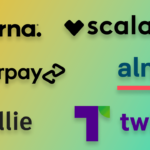Now Reading: What Is a Finance Degree?
-
01
What Is a Finance Degree?
What Is a Finance Degree?

Thinking about a career that involves money, markets, and making big decisions? A finance degree could be your ticket to a dynamic and rewarding future. This degree is designed to teach you how money works on a large scale. You’ll learn how individuals, companies, and governments manage their financial resources. It’s perfect for anyone who is good with numbers, enjoys problem-solving, and is interested in the economy. A finance degree prepares you for a wide range of jobs where you can help people make smart investment choices, guide businesses toward profitability, or analyze market trends. It’s more than just crunching numbers; it’s about understanding the story those numbers tell and using that knowledge to drive success. This path opens doors to high-stakes environments like Wall Street but also to essential roles in local businesses and non-profits.
Key Takeaways
- A finance degree provides a deep understanding of financial markets, investments, and corporate financial management.
- Core coursework includes accounting, statistics, financial analysis, and economics.
- Specializations like corporate finance or investment management allow you to tailor your education to specific career goals.
- Graduates can pursue diverse careers such as financial analyst, investment banker, personal financial advisor, and risk manager.
- Practical experience through internships and professional certifications like the CFA or CFP can significantly boost your career prospects.
How a Finance Degree Program Works
A finance degree program is typically a four-year bachelor’s program that dives into the world of money management. In the first couple of years, you build a strong foundation with general education courses and introductory business classes. Think of it as learning the alphabet before you start writing sentences. You’ll take classes in economics, accounting, statistics, and business law. These core subjects give you the essential tools you’ll need for more advanced finance topics. As you move into your junior and senior years, the curriculum becomes much more specialized. You’ll start tackling complex subjects like corporate finance, investment analysis, and portfolio management. This is where you learn the practical skills that employers are looking for. Many programs also require a capstone project or a senior seminar, where you apply everything you’ve learned to solve a real-world financial problem, giving you a taste of what your future career might hold.
Core Classes You’ll Take in a Finance Program
When you enroll in a finance degree program, your schedule will be filled with courses designed to build your financial expertise from the ground up. You can’t talk about finance without a solid grasp of accounting fundamentals, so expect to take several accounting classes. These courses teach you how to read, prepare, and analyze financial statements—the bedrock of any financial decision. Another key area is statistics and quantitative analysis, where you’ll learn to work with data, identify trends, and make predictions. This is crucial for everything from stock valuation to risk assessment.
You will also dive into core finance subjects, including:
- Corporate Finance: This class explores how businesses make financial decisions, such as how to raise capital, manage budgets, and decide which projects to invest in.
- Investments: Here, you’ll learn about different types of financial assets like stocks, bonds, and derivatives. You will study how to value them and build investment portfolios.
- Financial Markets and Institutions: This course provides an overview of the financial system, including banks, insurance companies, and stock exchanges, and explains the role they play in the economy.
These foundational courses ensure every student with a finance degree graduates with a comprehensive and practical skill set.
Popular Specializations in a Finance Degree
Once you have the basics down, many universities allow you to specialize your finance degree to match your career interests. This helps you develop deeper expertise in a specific area, making you a more attractive candidate for certain jobs. One of the most popular specializations is corporate finance. This path focuses on the financial health of a company, preparing you for roles like financial analyst or treasurer, where you’ll manage budgets, analyze investment opportunities, and help guide the company’s financial strategy. It’s ideal for students who want to work within a business to help it grow and succeed.
Another common specialization is investment management. If you’re fascinated by the stock market and want to help individuals or institutions grow their wealth, this is the track for you. You’ll learn advanced techniques for portfolio construction, asset allocation, and security analysis. This prepares you for careers as a portfolio manager, investment strategist, or research analyst. Other available specializations might include financial planning, where you help individuals with retirement and savings goals, or risk management, which focuses on identifying and mitigating financial risks for businesses.
Finance Degree vs. Accounting Degree
People often confuse a finance degree with an accounting degree, but they prepare you for different career paths. Think of it this way: accounting looks back, while finance looks forward. An accounting degree trains you to record, maintain, and audit financial records. Accountants are experts at creating financial statements that show a company’s past performance. They ensure accuracy and compliance with regulations. Their work is historical and detail-oriented.
A finance degree, on the other hand, teaches you to use that historical data to make future decisions. Finance professionals analyze financial statements to forecast future performance, make investment decisions, and plan for a company’s long-term growth. They focus on strategy and value creation. While there is overlap and both fields require strong analytical skills, their primary functions are distinct. For a deeper look into various business topics, you can find helpful resources at sites like https://forbesplanet.co.uk/.
|
Feature |
Finance Degree |
Accounting Degree |
|---|---|---|
|
Primary Focus |
Future financial planning and value creation |
Historical financial recording and reporting |
|
Typical Roles |
Financial Analyst, Investment Banker, Financial Advisor |
Auditor, Tax Accountant, Forensic Accountant |
|
Key Skill |
Strategic forecasting and investment analysis |
Precision, detail-orientation, and compliance |
|
Time to Complete |
Typically 4 years for a bachelor’s degree |
Typically 4 years for a bachelor’s degree |
Exciting Careers You Can Pursue
Graduating with a finance degree unlocks a multitude of career opportunities across various industries. One of the most common entry-level roles is a financial analyst. In this position, you’ll analyze financial data to help a company or an investor make informed decisions. You might work for a corporation, evaluating its performance and planning its budget, or for an investment firm, researching stocks and bonds. Another high-profile path is investment banking. Investment bankers help companies raise money by issuing stocks or bonds and advise on mergers and acquisitions. It’s a demanding but potentially very lucrative field.
If you enjoy working directly with people, a career as a personal financial advisor could be a great fit. You would help individuals manage their money, plan for retirement, and make smart investment choices. Other popular careers include risk management, where you identify potential financial hazards for a company, and roles in commercial banking, insurance, and real estate. The skills you gain from a finance degree are highly transferable, giving you flexibility throughout your career.
Skills Employers Look for in Finance Graduates
When hiring candidates with a finance degree, employers are searching for a specific blend of hard and soft skills. On the technical side, proficiency in financial analysis is non-negotiable. This means you must be comfortable reading financial statements, building financial models in Excel, and using statistical software to interpret data. A strong quantitative aptitude and an analytical mindset are essential. You need to be the person who can look at a spreadsheet full of numbers and see a story about a company’s health and future prospects.
However, technical skills alone are not enough. Employers also place a huge emphasis on soft skills. Communication is key; you must be able to explain complex financial concepts clearly and concisely to clients or executives who may not have a finance background. Problem-solving abilities are also critical, as your job will revolve around finding solutions to financial challenges. Other valued skills include attention to detail, ethical judgment, and the ability to work effectively in a team. The best candidates can combine their technical know-how with strong interpersonal skills.
The Importance of Internships and Real-World Experience

Document Marketing Strategy Business Concept
While your coursework provides the theoretical foundation, nothing beats hands-on experience. Internships are an incredibly important part of preparing for a career after earning your finance degree. An internship allows you to apply what you’ve learned in the classroom to real-world business challenges. You get a firsthand look at the daily responsibilities of a finance professional, whether you’re helping with market research at an investment firm or assisting with budget analysis in a corporate finance department. This experience is invaluable and looks fantastic on a resume.
Beyond just building your resume, internships help you build a professional network. You’ll meet people who can offer guidance, serve as mentors, and potentially connect you to job opportunities after graduation. Internships also help you decide which area of finance truly interests you. You might discover a passion for a field you hadn’t considered or realize that a certain career path isn’t the right fit. Many companies use their internship programs as a primary pipeline for hiring full-time, entry-level roles, so a successful internship can often lead directly to a job offer.
Certifications to Supercharge Your Finance Career
After completing your finance degree, pursuing a professional certification can significantly enhance your credentials and earning potential. These designations signal to employers that you have achieved a high level of expertise and are committed to your profession. One of the most respected certifications is the Chartered Financial Analyst (CFA) charter. The CFA program is a rigorous series of three exams covering investment tools, asset valuation, portfolio management, and wealth management. It is considered the gold standard for professionals in the investment management industry.
Another highly sought-after credential is the Certified Financial Planner (CFP) certification. This is ideal for those who want to work as personal financial advisors. To become a CFP professional, you must meet requirements in education, examination, experience, and ethics. The CFP mark demonstrates your expertise in helping individuals with retirement, estate, and investment planning. Other valuable certifications include the Financial Risk Manager (FRM) for those in risk management and the Certified Public Accountant (CPA), which is also valuable for many corporate finance roles.
Is a Finance Degree Worth It? The Salary Outlook
For many, a key question is whether the investment in a finance degree pays off. The answer is a resounding yes for most graduates. The field of finance generally offers salaries that are well above the national average, even for entry-level roles. According to the U.S. Bureau of Labor Statistics, the median annual wage for business and financial occupations was significantly higher than the median for all occupations. For example, financial analysts, a common job for new graduates, have strong earning potential that grows with experience.
As you advance in your career and potentially specialize or earn certifications, your salary prospects can increase dramatically. Roles in investment banking, private equity, and portfolio management are known for their high compensation packages, which often include substantial bonuses. While salaries can vary based on location, company size, and specific role, a finance degree consistently positions graduates for financially secure and rewarding careers. The strong demand for skilled finance professionals ensures that the return on investment for this degree remains high.
FAQ About a Finance Degree
1. How much math is involved in a finance degree?
You will need a strong foundation in algebra, calculus, and especially statistics. While you won’t be doing theoretical math proofs, you’ll use quantitative skills daily to analyze data and build financial models.
2. Can I get a finance job with an online finance degree?
Yes. Many accredited universities offer high-quality online finance degree programs. Employers generally view degrees from reputable online programs as equivalent to on-campus degrees, as long as the school is properly accredited.
3. What’s the difference between a Bachelor of Arts (BA) and a Bachelor of Science (BS) in Finance?
A BS in Finance typically includes a more intensive focus on math, statistics, and technical analysis. A BA in Finance may incorporate more liberal arts courses, focusing on the broader economic and social context of finance.
4. How long does it take to earn a finance degree?
A bachelor’s degree in finance is typically a four-year program for full-time students. Accelerated programs or transfer credits can shorten this timeline, while part-time study will extend it.
5. Do I need a master’s degree to succeed in finance?
Not necessarily. A bachelor’s finance degree is sufficient for many excellent entry-level and mid-career roles. However, a master’s degree, like an MBA or a Master of Science in Finance, can be beneficial for advancing to senior leadership positions, especially in competitive fields like investment banking.
















